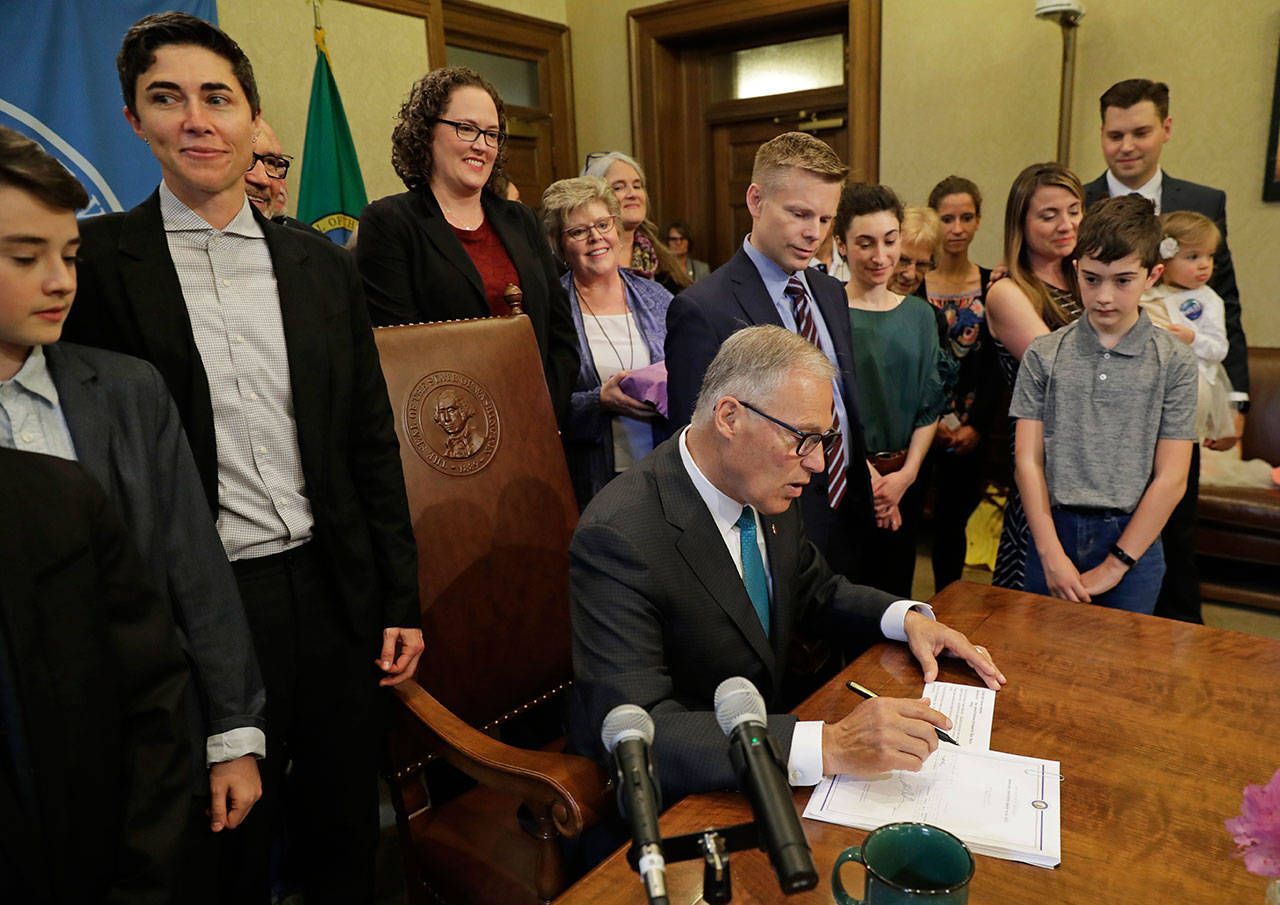By Gene Johnson
The Associated Press
SEATTLE — Gov. Jay Inslee has signed legislation making Washington the first state to approve composting as an alternative to burying or cremating human remains.
The measure signed Tuesday allows licensed facilities to offer “natural organic reduction,” which turns a body, mixed with substances such as wood chips and straw, into about two wheelbarrows’ worth of soil in a span of several weeks.
Loved ones are allowed to keep the soil to spread, just as they might spread the ashes of someone who has been cremated — or even use it to plant vegetables or a tree.
“It gives meaning and use to what happens to our bodies after death,” said Nora Menkin, executive director of the Seattle-based People’s Memorial Association, which helps people plan for funerals.
Supporters have said the method is an environmentally friendly alternative to cremation, which releases carbon dioxide and particulates into the air, and conventional burial, in which people are drained of their blood, pumped full of formaldehyde and other chemicals that can pollute groundwater, and placed in a nearly indestructible coffin, taking up land.
“That’s a serious weight on the earth and the environment as your final farewell,” said Sen. Jamie Pedersen, the Seattle Democrat who sponsored the measure.
He said the legislation was inspired by his neighbor: Katrina Spade, who was an architecture graduate student at the University of Massachusetts, Amherst, when she began researching the funeral industry. She came up with the idea for human composting, modeling it on a practice farmers have long used to dispose of livestock.
She tweaked the process and found that wood chips, alfalfa and straw created a mixture of nitrogen and carbon that accelerates natural decomposition when a body is placed in a temperature- and moisture-controlled vessel and rotated.
A pilot project at Washington State University tested the idea last year on six bodies, all donors who Spade said wanted to be part of the study.
In 2017, Spade founded Recompose, a company working to bring the concept to the public. It’s working on raising nearly $7 million to establish a facility in Seattle and begin to expand elsewhere, she said.
State law previously dictated that remains be disposed of by burial or cremation. The law, which takes effect in May 2020, added composting as well as alkaline hydrolysis, a process already legal in 19 other states.
The latter uses heat, pressure, water and chemicals like lye to reduce remains.
Cemeteries across the country are allowed to offer natural or “green” burials, by which people are buried in biodegradable shrouds or caskets without being embalmed. Composting could be a good option in cities where cemetery land is scarce, Pedersen said. Spade described it as “the urban equivalent to natural burial.”
The state senator said he has received angry emails from people who object to the idea, calling it undignified or disgusting.
“The image they have is that you’re going to toss Uncle Henry out in the backyard and cover him with food scraps,” Pedersen said.
To the contrary, he said, the process will be respectful.
Recompose’s website envisions an atrium-like space where bodies are composted in compartments stacked in a honeycomb design. Families will be able to visit, providing an emotional connection typically missing at crematoriums, the company said.
“It’s an interesting concept,” said Edward Bixby, president of the Placerville, Calif.-based Green Burial Council. “I’m curious to see how well it’s received.”

